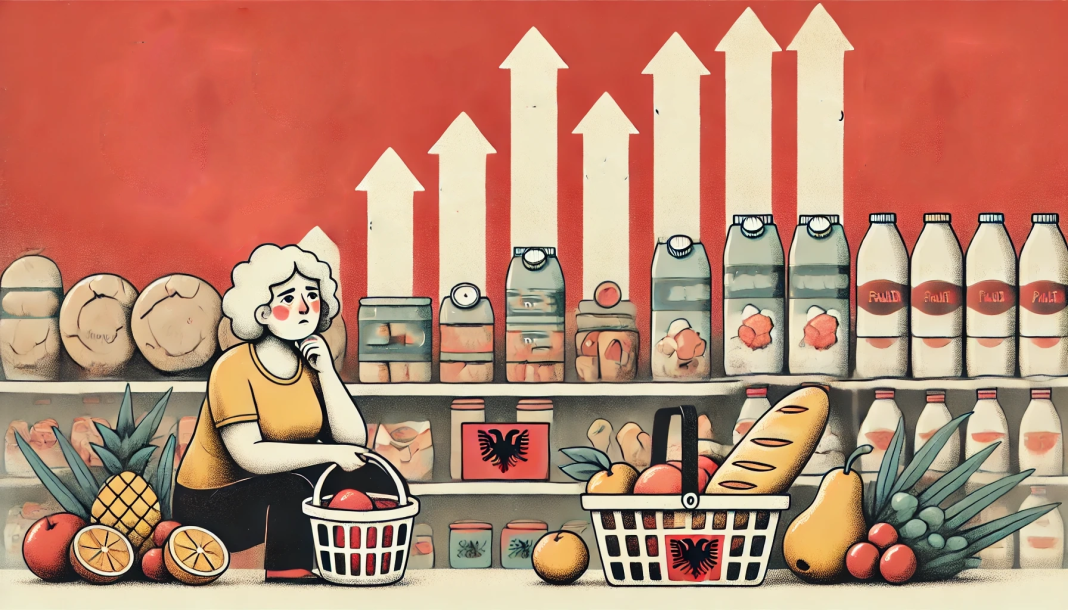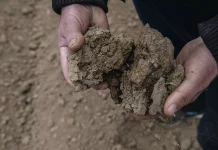Excessive pricing is pushing some Albanian citizens to travel hundreds of kilometers to neighboring countries to buy basic goods, while the most vulnerable families have had to cut back on their consumption.
Esmeralda Topi
For the last seven years, Ola and her husband have been traveling to Greece to purchase food and other essential items for their family.
“We started initially for the quality, but over time we realized it was also cheaper than in Tirana,” Ola recalled.
‘With the costs of fuel and car insurance, the products we buy still cost less than they do in our country,’ she added.
Albania is one of the lowest-income countries in Europe, yet prices for many everyday consumer products are significantly higher than in wealthier EU nations.
Not every consumer has the option to travel abroad for their groceries, particularly those from the most vulnerable groups, who have been forced to reduce their consumption for their families.
‘Post-pandemic living has become much more expensive,’ said Alma, a single mother from Shijak, mentioning that everything has become pricier over the last three years.
‘I haven’t been abroad myself, but my relatives who come here say, ‘We feel sorry for you; how do you manage when everything here is more expensive than there?’.
Other consumers also notice the price differences for food and other goods between Albania and various EU countries.
Data collected by Faktoje through an online survey of numerous citizens show that 87% of respondents assert that Europe has lower prices than Albania for food and other consumer items.
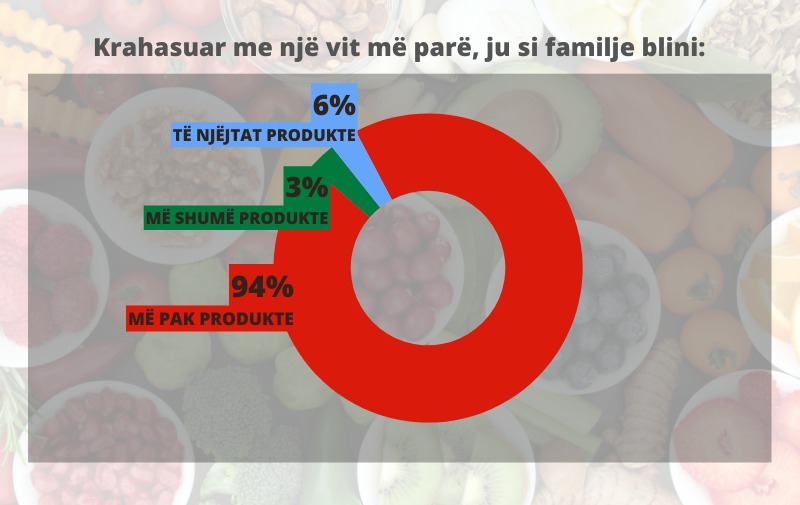
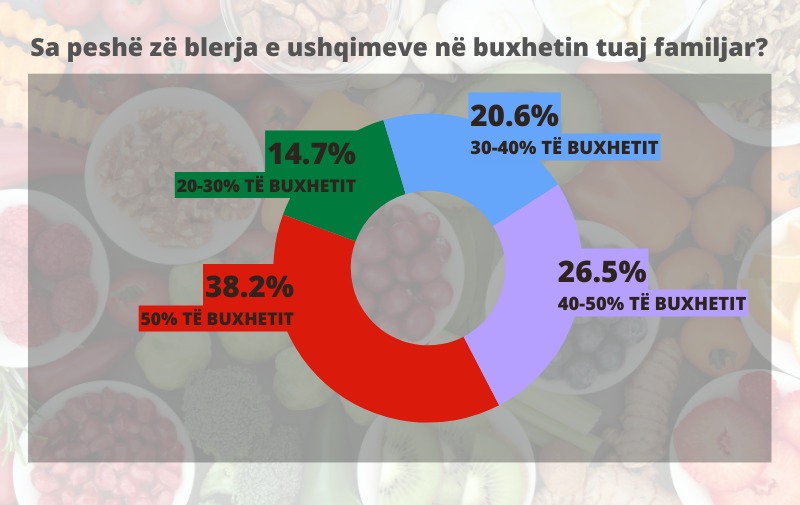
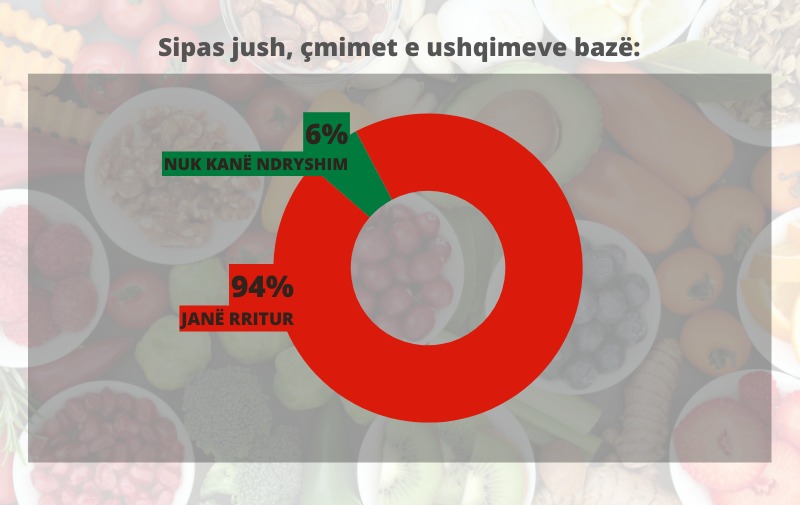
Economic experts and researchers argue that the price differences experienced by local consumers may arise from several objective factors, such as tax levels, transportation costs, the exchange rate of LEK against the EURO, and market size.
However, they primarily blame the exploitation by trading companies that have created oligopolies in the market, as well as the lack of accountability and inadequate consumer protection against such abuses.
Ilir Ciko, an Albanian economist trained at Harvard University, points out that the variation in prices for consumer goods mainly originates from ‘the ties and dependencies between politics and the interests of large corporations, secret deals among dominant market players, widespread corruption within institutions, and the limited ability of consumers to find alternative choices.’
When asked by Faktoje, the Competition Authority stated in a written response that it has taken several steps over the past five years to ensure a fair and competitive market for basic consumer goods, in line with its legal obligations and resolutions from the Assembly.
‘The Competition Authority has conducted monitoring and investigations into many basket products such as oil, wheat, flour, rice, sugar, and fuel in recent years,’ the Authority stated.
‘Currently, in response to public complaints, there are preliminary investigations underway into the wholesale collection and sale of fruits and vegetables in the Tirana, Elbasan, Berat, Fier, and Korça regions, as well as an in-depth investigation into the production and wholesale trade of dairy by-products (cheese and butter),’ the institution added.
Prices Higher than in the EU and the Region
Every three months, a couple drives seven hours from Tirana to Kostur—a small town in northern Greece—and back to purchase their groceries and daily consumer items. They have no plans to change this routine due to its economic benefits.
‘In Greek supermarkets, food and personal hygiene products can be up to four times less expensive than in Albanian supermarkets. Additionally, the prices of supplements and certain medications are much more affordable,’ Ola stated. ‘For example, a single (iron) supplement tablet costs 100 New LEK in Albania, while in Greece, it is only 25 New LEK.
‘In response to this price gap, Professor Ciko conducted a comprehensive study this spring, analyzing 150 products from Albania alongside their counterparts in European countries.
The study indicates that in the spring of this year, the average price of products in the Albanian market was approximately 80% higher than the average price of the same products sold by the same companies in EU markets.
‘Among the 150 products examined, the greatest percentage difference was found in the price of a package of breakfast cereal, cornflakes, which is sold in Albania at a price 212% higher—more than three times the price offered by the same company in the European country from which it is sourced,’ he noted.
The research identifies the highest price discrepancies in three categories: baby food, general food items, and pet food. According to the data gathered, baby food exhibits the most significant average price difference.
The study titled ‘Become European! A transformative journey through Dreams, models, expectations, and reality’.
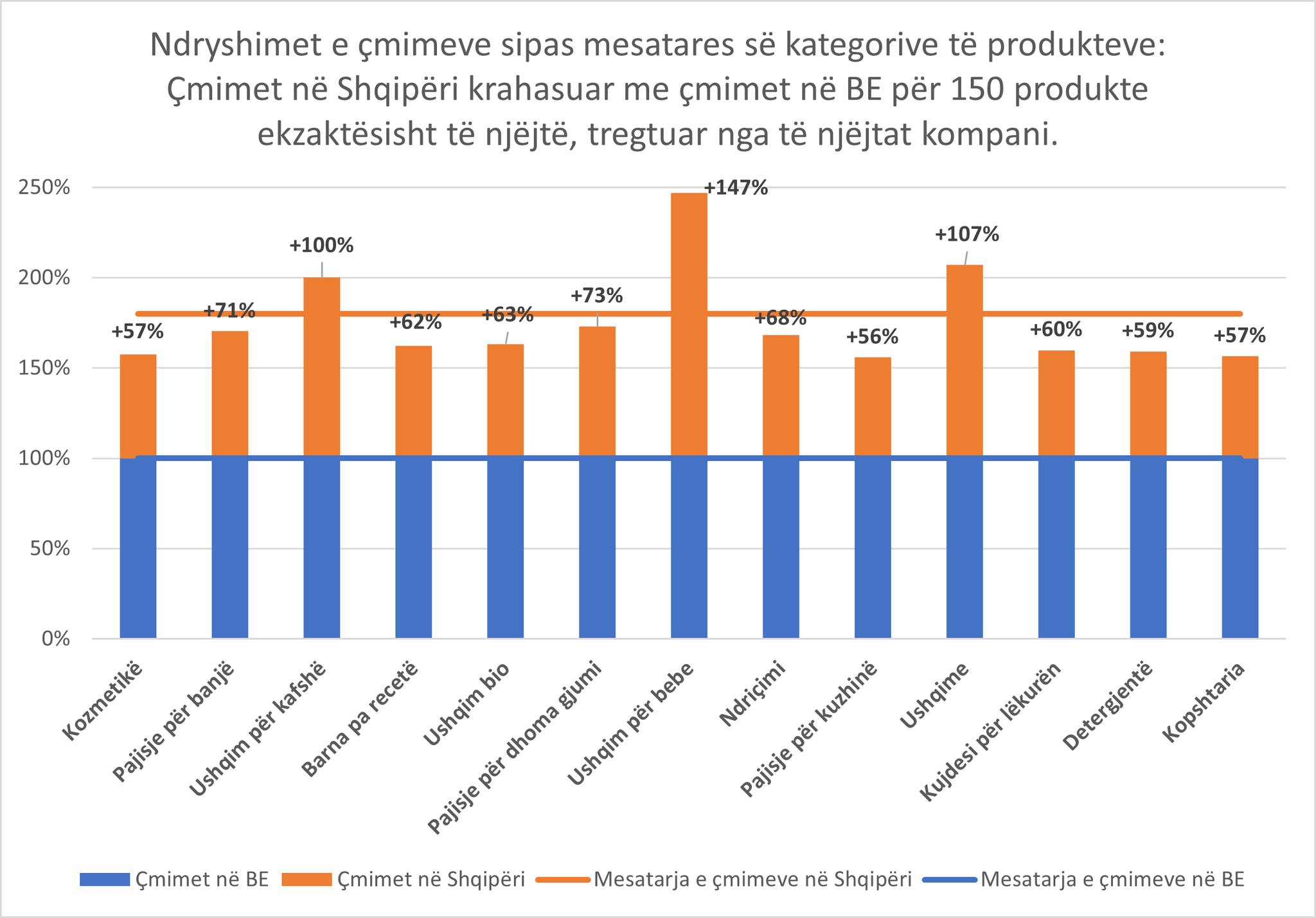
‘It reveals that for this category, the average price of products sold in Albania is 147% higher—two and a half times the price of the same products sold in the EU country from which the company sources them,’ Ciko stated.
Additionally, the study points out that EU-origin products are significantly pricier in Albania compared to neighboring countries.
In Serbia and Kosovo, the average price difference is under 15%, while in Albania, it skyrockets to 71%.
Oligopoly Market
According to findings from an online survey conducted by Faktoje, 73% of participants believe that the price differences between Albania and EU countries stem from abuses, insufficient market competition, and a lack of effective government regulation.
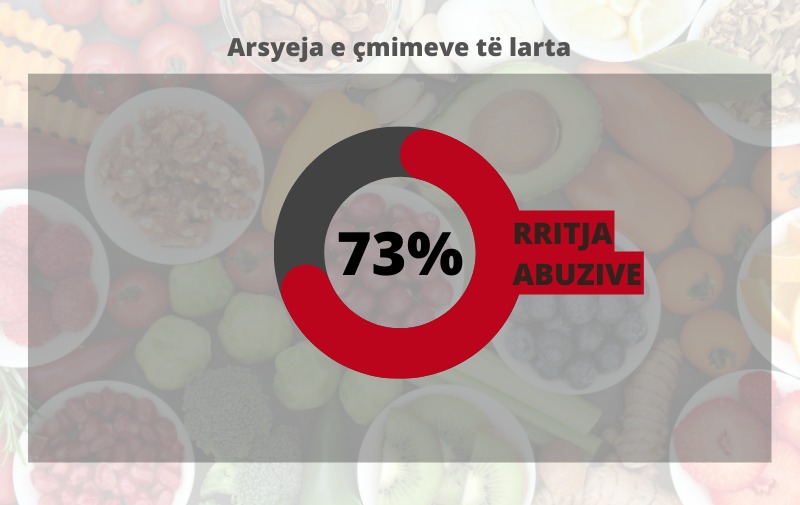
Economist Eduard Gjokutaj asserts that this scenario is typical of an oligopolistic market dominated by a small group of players. He points out that prices continue to remain stubbornly high, even with the strengthening of the local currency against foreign currencies.
‘In a situation where the foreign currencies used for purchasing these products in international markets have decreased by 25%, we should have seen at least a 15% decline in prices over the last two years, especially when considering the rising costs of labor, energy, and other services,’ he remarked.
Professor Ilir Ciko outlines several contributing factors to this situation, including the absence of regulation, a culture that allows companies to operate without accountability for consumer exploitation, and a lack of competition in the market.
However, he added that this market distortion is unlikely to change since consumers have limited information and Albanian society has accepted and adapted to these issues.
‘The lack of hope, the extreme politicization of every public matter, and the silencing of intellectuals,’ he explains, translate into a complete absence of civic response, ineffective protective mechanisms, and a lack of interest from the state and pseudo-civil society in safeguarding consumer rights.
Only after addressing these fundamental factors, Professor Ciko emphasizes, we can begin to consider the levels of consumption taxes, transportation costs, the valuation of the LEK against the Euro, market size, and other aspects that are relatively less significant in this context.
The Elephant in the Room
The significant rise in prices is forcing Albanian families to buy less food. According to a survey conducted by Faktoje on food costs in Albania and the EU, 94% of respondents acknowledge buying fewer items compared to a year ago, while 76% report reducing their purchases of various food products.
‘I’ve been obliged to buy less and be cautious with my spending because it just doesn’t add up,’ stated Alma Morina. ‘Half of my salary is spent just on basic food items, without factoring in anything else,’ she added.
Professor Ilir Ciko notes that his research has garnered significant interest from officials and representatives of institutions dealing with competition and consumer rights. However, he perceives these institutions as largely powerless to effect meaningful change.
‘For many, this study is akin to a massive elephant in the room of comfort they occupy,’ remarked Ciko. ‘While it may seem paradoxical, I truly believe that change could arise from the companies themselves, particularly under the pressure of public demand,’ he emphasized.
Gjokutaj suggests that a reduction in VAT on food products could ease the situation somewhat, but he emphasizes that the bells primarily rests on the Competition Authority. Despite this, many Albanians will likely continue to turn to markets in neighboring countries as they await action from both institutions and companies.
‘I have another trip to Kostur planned in the next two weeks,’ Ola said. ‘I also intend to go again before the New Year,’ she concluded.
You can find the full interview with Professor Ilir Ciko at the link below.
https://faktoje.al/ne-shqiperi-cmimet-80-me-te-larta-se-ne-evrope/
Note
This article has been revised to maintain the anonymity of the main character, as requested. Adjustments have been made to ensure that their identity remains confidential while preserving the essential and relevant information related to the article’s topic.

